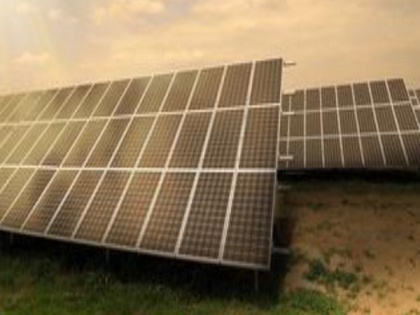BCD on imported solar cells, modules to increase solar bid tariffs: ICRA
By ANI | Published: March 13, 2021 12:56 PM2021-03-13T12:56:10+5:302021-03-13T13:05:07+5:30
The imposition of 40 per cent basic customs duty (BCD) on solar modules is expected to increase capital cost of a solar power plant by 23 to 24 per cent as modules form about 55 per cent of the overall capital cost, according to investment information firm ICRA.

BCD on imported solar cells, modules to increase solar bid tariffs: ICRA
The imposition of 40 per cent basic customs duty (BCD) on solar modules is expected to increase capital cost of a solar power plant by 23 to 24 per cent as modules form about 55 per cent of the overall capital cost, according to investment information firm ICRA.
The increase in capital cost is expected to raise solar power tariffs by 45 to 50 paise per unit provided the module prices remain in line with existing levels, it said.
The computation as per ICRA's estimates factors in the increase in cost considering a scenario where there will be no safeguard duty (SGD) after July. However, clarity is awaited on the continuation of SGD on imported cells and modules which currently stands at 14.5 per cent.
The government on March 9 approved a proposal to impose a BCD of 25 per cent on imported solar photo-voltaic (PV) cells and 40 per cent on imported solar PV modules from April 1. While this will support domestic equipment manufacturers (OEMs), said ICRA, it is likely to result in an increase in solar tariffs.
The government has set an ambitious target to achieve solar power capacity of 100 GW by December 2022 and 280 GW by March 2030 to meet the targets under Paris Climate Agreement.
However, this did not translate into an increased demand for domestic solar module and cell manufacturers over the years with the country fulfilling close to 80 per cent of solar module requirements through imports.
This is due to various factors including lack of scale and backward integration of Indian manufacturers along with large capital requirements for setting up such facilities. As a result, the installed solar energy capacity increased to 38.8 GW as on January 31, 2021 from 35 MW as on March 31, 2011.
The government has notified multiple schemes like manufacturing-linked IPP tender, central PSU scheme and PM KUSUM scheme with mandatory use of domestically manufactured modules, which provides a strong order pipeline aggregating to about 35 to 40 GW over the next three to five year period for domestic solar OEMs.
However, timely implementation of these notified schemes through time-bound project awards and availability of PSAs with the ultimate off-takers remains critical, said ICRA.
Also, policy clarity on fiscal and financial concessions including production-linked incentive (PLI) scheme to promote domestic manufacturing remains important, it said.
( With inputs from ANI )
Disclaimer: This post has been auto-published from an agency feed without any modifications to the text and has not been reviewed by an editor
Open in app